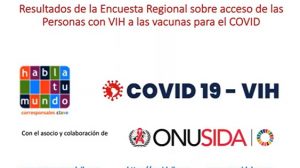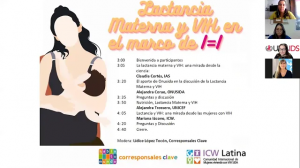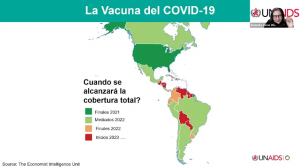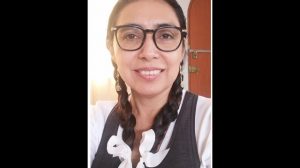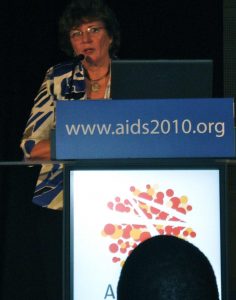 “After the earthquake, Haiti became everyone’s business”, said Dr. Mirta Roses, Director of the Pan American Health Organisation. But she warned: “Only 10% of the international support committed for rebuilding has actually made it to the country”.
“After the earthquake, Haiti became everyone’s business”, said Dr. Mirta Roses, Director of the Pan American Health Organisation. But she warned: “Only 10% of the international support committed for rebuilding has actually made it to the country”.
Before the disaster
One factor that contributed to mitigating the earthquake’s impact was the number of healthcare centres for people living with HIV dotted around the country. One example is, GHESKIO, a local NGO which provides treatment to 50% of PLHIV in Haiti using Global Fund and PEPFAR resources. GHESKIO manages 28 centres, some of them far from earthquake epicentre, where patients could be referred to safely and quickly.
Paul Farmer (Partners in Health) and Jean William Pape (GHESKIO) agreed that the existing partnership with the Haitian government was a determining factor for the quick response in the first days after the earthquake. “27 out of 28 federal buildings in the capital city were destroyed”, said Pape. “Can you imagine, how long it would take to make them operational again if such a thing happened in your countries? In this case, people in Haiti made all the difference.
Many organisations had a three-step contingency plan in the case of a natural disaster or political crisis: ensure a minimum number of staff available at care and treatment centres; guarantee treatment distribution; and rebuild the infrastructure. The crisis in January exceeded any pre-existing plans to respond to extreme situations.
The day after
“After several months of hard work, 95 percent of our patients resumed their ARV treatment”, said Patrice Severe, Medical Director of GHESKIO. However, he pointed out that “We are prepared to respond to AIDS but not to an earthquake.”
Dr. Pape described how the earthquake swept away the capital city’s main tuberculosis hospital. A few days after the earthquake, 7,000 people turned up in need of TB treatment. In response, a treatment centre was set up under field conditions close to the ruins of the TB hospital.
A Republic of NGOs
“Haiti now has the highest number of NGOs per capita in the world”, Dr. Farmer explained. “But the crisis showed us that the country suffers from a chronic lack of NGO coordination. I believe the demand for funds should focus on coordination; cooperation is imperative.”
Only 2.6 percent out of US$1.8 billion is being transferred to the public health sector. “Donors must take risks and transfer resources where Haitians need them, including public health systems”, urged Farmer regarding the delay in receiving funds and the poor logistics. He concluded: “NGOs and universities will not be able to restore citizen’s rights; it is the government which sooner or later will have to provide them.”
Participants on the panel stressed the importance of rebuilding Haiti, but not only its infrastructure. They agreed in the need of building the local control, gaining ownership over their own future, their programmes and their systems. Investment is urgently needed in education and to build the capacity of human resources throughout the country.
Marie Marcelle Deschamps of GHESKIO, concluded: “We Haitians must show that we are in charge of rebuilding and restoring our own services. This country needs a chance.”
Some lessons lea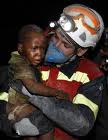 rned that are already clear inlude: Better coordination and alignment is required among local and international NGOs, and donors and government. Once the emergency is over and basic services are in place, programme implementation and control must be transferred to local organisations. Nobody is prepared for such a huge disaster, but this much is for sure: a fluent coordination and prior experience of multisectoral coordination will reduce the impact of the catastrophe and ensure a faster response to those in need.
rned that are already clear inlude: Better coordination and alignment is required among local and international NGOs, and donors and government. Once the emergency is over and basic services are in place, programme implementation and control must be transferred to local organisations. Nobody is prepared for such a huge disaster, but this much is for sure: a fluent coordination and prior experience of multisectoral coordination will reduce the impact of the catastrophe and ensure a faster response to those in need.
While writing this article, today’s plenary opening was again taken over by a demonstration. In this case, the topic was the housing crisis of people living with HIV, and a Haitian delegate denounced that thousands of Haitians living with HIV have neither shelter nor food.
Organisations working on HIV/AIDS have little experience in responding to these types of situations. We lack resources, experience and means to guarantee, for instance, HIV and TB treatment delivery in the days after the disaster. Civil society organisations also experience significant limitations in partnering with governments; this must be overcome.
It’s particularly frustrating to hear donors promises, commitments and goodwill, but then to learn that 7 months later, only a fraction of what was promised has actually reached Haiti.
A significant number of Haitians delegates participated in this session. During the course of week they will share their work on AIDS before and after the crisis. We can learn a lot from them. We all want to be there, we all want to help. But we should not mix up commitment with our own self-motivated intentions, and so risk becoming part of the problem rather than part of the solution.





